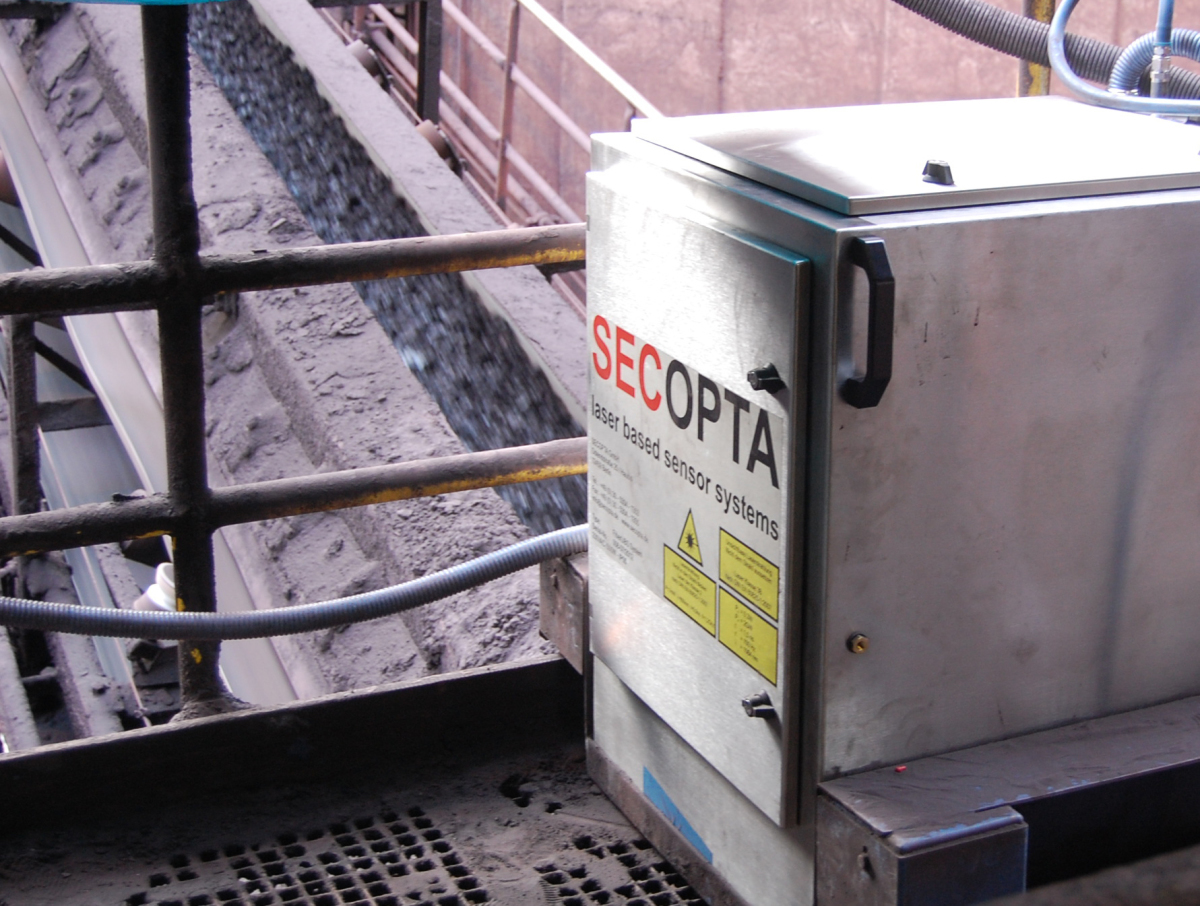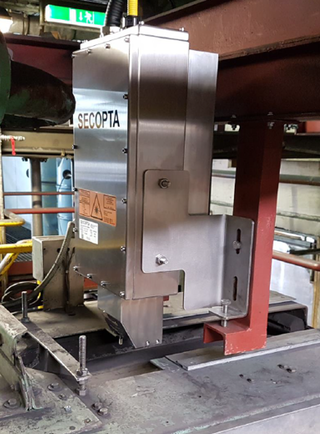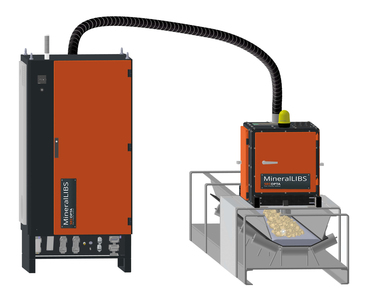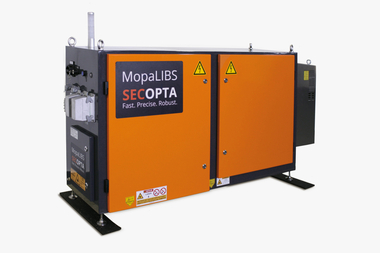SECOPTA analytics GmbH
 SECOPTA's LIBS systems check the composition of powdered, fine- and coarse-grained industrial minerals such as quartz, feldspar or limestone 24/7 inline, on site and in situ passing on a conveyor belt
SECOPTA's LIBS systems check the composition of powdered, fine- and coarse-grained industrial minerals such as quartz, feldspar or limestone 24/7 inline, on site and in situ passing on a conveyor belt
© Secopta analytics GmbH
SECOPTA will debut its new mineralLIBS for automated inline material monitoring and positive material identification (PMI). The system enables powder, fine as well as coarse-grained industrial minerals such as quartz, feldspar or limestone to be measured directly on the conveyor belt quickly, precisely, continuously, with long-term stability and in 24/7 operation.
LIBS (Laser Induced Breakdown Spectroscopy) systems analyze the chemical composition of materials. During the measurement, a plasma is generated by a laser beam and analyzed in a dedicated spectrometer. This makes it possible to check the chemical composition of a material stream directly and in a matter of seconds. The results are available immediately. The measurement is continuous and records all material passing through the system 24/7.
 Inline measurement of powders with the FiberLIBS inline from SECOPTA
Inline measurement of powders with the FiberLIBS inline from SECOPTA
© Secopta analytics GmbH
SECOPTA has developed its new system, mineralLIBS, especially for coarse industrial minerals such as quartz, feldspar or limestone as well as for ores or coal with a grain size up to 100 mm. With an autofocus system, it adapts to different grain sizes or changing loading heights of the material on the conveyor belt. In addition, SECOPTA offers the FiberLIBSinline SP, a measuring system for fine or powder material. Both systems operate for a long time reliably even under harsh operating conditions, such as those encountered in the production and processing of building materials and ores. The areas of application for both systems are in incoming goods, process control or PMI.
In incoming goods and process control, continuous, in situ measurement replaces random sampling, which often only takes place in a several hours interval. This means that the material delivered or to be processed can be checked immediately and quickly for suitability. During processing, the system controls the material flow through permanent chemical in situ analysis. If limit values are exceeded, this system warns of unwanted deviations.
By means of PMI, operators are sure that their plants are always working with a correct material supply in the prescribed quality. The measured data is logged, archived and available for further processing and documentation.
Dr. Christian Bohling, head of SECOPTA analytics GmbH, keeps an eye on his customers' costs and revenues: "If I see that incorrect material is entering my process and I can intervene immediately, this saves money and time. As a result, the material in question is discharged and my plants continue to operate after a short time. This is how I save complete batches with a small investment in my measurement technology."
Hall 3, booth 325


